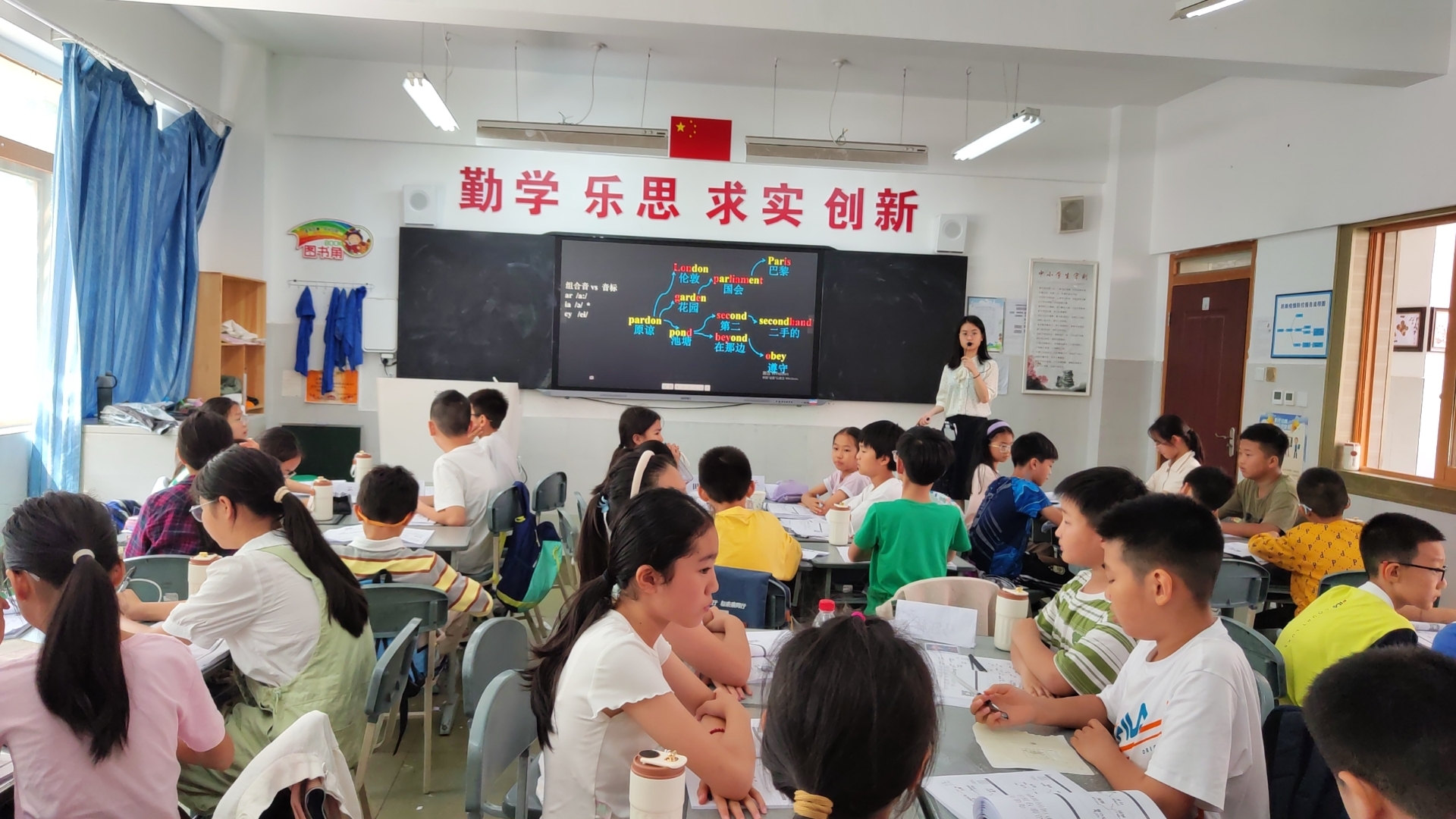-

评论
-

收藏
-

点赞

中考英语核心考点完整版汇总(70句型+100短语+全作文模板)
阅读量:1137 2025.10.22
奇速英语AI伴学自习室中考英语核心考点完整版汇总750句型+100短语+全作文模板)
.jpg)
.jpg) 一、重点语法句型(70个)
一、重点语法句型(70个)
(一)基础句型(10个)
1. There + be + 主语 + 地点/时间状语(某地/某时有某物)
2. 主语 + 谓语 + 宾语(主谓宾基本结构)
3. 主语 + 系动词(be/look/feel)+ 表语(主系表结构)
4. What's wrong with + sb./sth.?(某人/某物怎么了?)
5. How do you like...?(你觉得……怎么样?)
6. What do you think of...?(你认为……如何?)
7. What's the weather like...?(……天气怎么样?)
8. How much is/are...?(……多少钱?)
9. How long does it take sb. to do sth.?(做某事花费某人多久?)
10. What time is it? / What's the time?(几点了?)
(二)动词类句型(15个)
1. allow sb. to do sth.(允许某人做某事)
2. ask sb. (not) to do sth.(要求某人(不)做某事)
3. tell sb. (not) to do sth.(告诉某人(不)做某事)
4. want sb. to do sth. / want to do sth.(想要(某人)做某事)
5. would like (sb.) to do sth.(愿意(某人)做某事)
6. help sb. (to) do sth. / help sb. with sth.(帮助某人做某事)
7. be afraid to do sth. / be afraid of doing sth.(害怕做某事)
8. be busy doing sth. / be busy with sth.(忙于做某事)
9. be worth doing sth.(值得做某事)
10. finish doing sth.(完成做某事)
11. enjoy doing sth.(喜欢做某事)
12. mind doing sth.(介意做某事)
13. practice doing sth.(练习做某事)
14. keep (on) doing sth.(继续/坚持做某事)
15. have fun doing sth.(做某事很开心)
(三)连词类句型(10个)
1. both...and...(既……又……,连接并列成分)
2. either...or...(要么……要么……,就近原则)
3. neither...nor...(既不……也不……,就近原则)
4. not only...but also...(不仅……而且……,就近原则)
5. as soon as...(一……就……,主句用将来时,从句用一般现在时)
6. though/although...(虽然……但是……,不与but连用)
7. if...(如果……,主句用将来时,从句用一般现在时)
8. when/while...(当……时候,while后接延续性动词)
9. until...(直到……,not...until...表示“直到……才……”)
10. because...(因为……,不与so连用)
(四)固定句式(15个)
1. had better (not) do sth.(最好(不)做某事)
2. It takes sb. some time to do sth.(做某事花费某人多长时间)
3. sb. spend(s) time/money on sth. / (in) doing sth.(某人花费时间/金钱在某事上/做某事)
4. sth. cost(s) sb. some money(某物花费某人多少钱)
5. sb. pay(s) some money for sth.(某人为某物付多少钱)
6. It's + adj. + for sb. to do sth.(对某人来说做某事是……的,形容事物性质)
7. It's + adj. + of sb. to do sth.(某人做某事是……的,形容人的品质)
8. the + 比较级,the + 比较级(越……,越……)
9. 比较级 + and + 比较级(越来越……)
10. as + adj./adv. + as...(和……一样……)
11. not as/so + adj./adv. + as...(不如……那样……)
12. So + be/情态动词/助动词 + 主语(……也一样,表肯定)
13. Neither + be/情态动词/助动词 + 主语(……也不,表否定)
14. What a/an + adj. + 可数名词单数 + (主语+谓语)!(感叹句)
15. How + adj./adv. + (主语+谓语)!(感叹句)
二、重点短语(100组)
(一)动词短语(60组)
1. agree with(同意)
2. arrive at/in(到达,小地点用at,大地点用in)
3. ask for(请求;索要)
4. look for(寻找)
5. wait for(等待)
6. call up(打电话)
7. cheer up(使振奋)
8. clean up(打扫干净)
9. give up(放弃)
10. pick up(捡起;接某人)
11. put up(张贴;搭建)
12. take up(占据;开始学习)
13. wake up(醒来)
14. break down(出故障;分解)
15. break out(爆发)
16. come true(实现)
17. come from(来自)
18. come over(顺便来访)
19. get up(起床)
20. get on(上车)
21. get off(下车)
22. get to(到达)
23. get along with(与……相处)
24. get ready for(为……做准备)
25. get back(回来;取回)
26. give away(赠送;分发)
27. give out(分发;用尽)
28. give in(屈服)
29. go on(继续)
30. go out(出去;熄灭)
31. go away(离开)
32. go through(通过;经历)
33. hand in(上交)
34. hand out(分发)
35. hold on(等一下;坚持)
36. keep on(继续)
37. look after(照顾;照料)
38. look at(看)
39. look up(查阅;抬头看)
40. look out(小心;向外看)
41. look around(环顾四周)
42. make up(编造;组成)
43. make sure(确保)
44. make friends with(与……交朋友)
45. take care of(照顾;处理)
46. take off(起飞;脱下)
47. take away(拿走)
48. take down(记下;拆除)
49. take out(取出)
50. turn on(打开)
51. turn off(关闭)
52. turn up(调大;出现)
53. turn down(调小;拒绝)
54. set up(建立;设立)
55. send up(发射)
56. put off(推迟)
57. put away(收拾好)
58. run out of(用完)
59. think of(认为;想起)
60. think about(考虑)
(二)介词短语(20组)
1. in front of(在……前面,外部)
2. in the front of(在……前面,内部)
3. at the end of(在……末端/尽头)
4. by the end of(到……结束时)
5. on the way to(在去……的路上)
6. in the way(挡路)
7. by the way(顺便说一下)
8. instead of(代替;而不是)
9. because of(因为,后接名词/短语)
10. thanks to(多亏;由于)
11. in order to(为了,后接动词原形)
12. in order that(为了,后接从句)
13. according to(根据)
14. as for(至于;关于)
15. along with(和……一起)
16. together with(和……一起)
17. in common(共同;共有)
18. in fact(事实上)
19. in general(通常;大体上)
20. on time(按时) / in time(及时)
(三)其他常用短语(20组)
1. a lot of / lots of(许多,后接可数/不可数名词)
2. plenty of(大量,后接可数/不可数名词)
3. a number of(许多,后接可数名词复数,谓语用复数)
4. the number of(……的数量,后接可数名词复数,谓语用单数)
5. all kinds of(各种各样的)
6. different kinds of(不同种类的)
7. kinds of(各种各样的)
8. a kind of(一种)
9. worry about / be worried about(担心)
10. be interested in(对……感兴趣)
11. be good at(擅长……)
12. be good for(对……有益)
13. be bad for(对……有害)
14. be late for(迟到)
15. be famous for(因……而著名)
16. be proud of(为……感到骄傲)
17. be used to(习惯于,后接doing;被用来,后接do)
18. used to(过去常常,后接do)
19. to one's surprise(令某人惊讶的是)
20. in one's opinion(在某人看来)
.jpg)
三、作文模板大全
(一)记叙文(3类高频场景)
1. 记一次活动(如旅行、比赛、志愿者活动)
- 开头:交代时间、地点、人物和活动主题
“Last [Saturday/Sunday/month], my classmates and I took part in [an English competition/a volunteer activity/a school trip] to [place]. We were all excited because it was our first time to [do sth. related to the activity].”
- 中间:按“准备→过程→亮点”展开,加入细节(动作、语言、感受)
“Before the activity, we [prepared sth., e.g., practiced English speeches/made posters]. When we arrived, [first step, e.g., the host introduced the rules]. Then, [key process, e.g., I stood on the stage and spoke loudly; we helped clean the park]. The most unforgettable part was [highlight, e.g., when I won the third prize; when an old grandma thanked us]. I felt [emotion, e.g., nervous but happy/tired but proud] at that moment.”
- 结尾:总结收获或启发
“Although the activity ended, it taught me [lesson, e.g., the importance of teamwork; that helping others brings happiness]. I will always remember this meaningful experience.”
2. 记一件难忘的事(如帮助他人、克服困难)
- 开头:引出事件背景,制造悬念
“There is one thing that I will never forget in my middle school life. It happened on [a cold winter morning/a rainy afternoon] when I [was on my way to school/was doing homework].”
- 中间:按“起因→经过→结果”叙述,突出细节
“At that time, [cause, e.g., I saw an old man fall down on the road/my math homework was too hard for me]. I [first reaction, e.g., didn't know what to do at first/ wanted to give up]. But then, [action, e.g., I ran to help him stand up and called his family; my teacher helped me analyze the problem step by step]. Finally, [result, e.g., the old man's son thanked me; I finished the homework successfully].”
- 结尾:表达感受或领悟
“This experience made me realize that [truth, e.g., small kindness can warm others; never give up when facing difficulties]. It will encourage me to be a better person.”
3. 介绍人物(如家人、老师、朋友)
- 开头:点明人物身份和总体印象
“The person I admire most is my [mother/English teacher/best friend], [name]. She/he is [age] and always [general characteristic, e.g., kind and patient/helpful and outgoing].”
- 中间:通过1-2件具体事例展现人物特点
“What I like most about her/him is [feature 1, e.g., her patience in teaching]. Once, [example 1, e.g., I couldn't understand a grammar rule. She spent 30 minutes explaining it to me until I got it]. Besides, she/he is also [feature 2, e.g., very helpful]. Last month, [example 2, e.g., my friend was ill and missed many classes. She/he helped him catch up with the lessons after school].”
- 结尾:表达对人物的情感或影响
“Thanks to her/his help and influence, I [change, e.g., become more interested in English/learn to help others]. I hope I can be as good as her/him in the future.”
(二)议论文(4类高频话题)
1. 观点对比类(如“是否该用手机”“是否该布置家庭作业”)
- 开头:引出话题,说明存在两种不同观点
“Nowadays, there is a heated discussion about whether [topic, e.g., students should use mobile phones at school/teachers should give homework on weekends]. Different people have different opinions.”
- 中间:分述双方观点及理由
“On one hand, some people think it is [good/necessary]. They believe that [reason 1, e.g., mobile phones can help students look up new words; homework can help students review what they learned]. What's more, [reason 2, e.g., students can keep in touch with their parents via mobile phones; homework can improve students' skills].”
“On the other hand, others disagree. They argue that [reason 1, e.g., mobile phones may distract students from studying; too much homework will make students tired]. Besides, [reason 2, e.g., some students may play games on mobile phones; students need time to relax on weekends].”
- 结尾:表明自己的观点及理由
“In my opinion, [your view, e.g., students should not use mobile phones at school/teachers should give proper homework]. Because [your reason, e.g., it can help us focus on study; it can balance study and rest]. Only in this way can we [goal, e.g., make progress in study/enjoy a happy school life].”
2. 问题解决类(如“如何保护环境”“如何应对压力”)
- 开头:提出存在的问题及影响
“Nowadays, [problem, e.g., environmental pollution is becoming more and more serious/students are facing more and more pressure from study] has become a big problem. It not only [influence 1, e.g., harms our health/affects our study] but also [influence 2, e.g., destroys the earth/ makes us feel unhappy].”
- 中间:提出2-3个解决方法及理由
“To solve this problem, we can take the following measures. First, [method 1, e.g., we should plant more trees/arrange our time properly]. Because [reason 1, e.g., trees can absorb harmful gases/ proper time management can reduce stress]. Second, [method 2, e.g., we should stop using plastic bags/ talk to our parents or friends when we feel stressed]. This is because [reason 2, e.g., plastic bags pollute the environment/ talking can help us release pressure]. Finally, [method 3, e.g., the government should make strict laws/ we can do more sports]. It can [effect 3, e.g., prevent factories from pouring waste water/ make us stronger and more relaxed].”
- 结尾:展望未来,呼吁行动
“If everyone takes action, I believe [problem] will be solved soon. Let's work together to [goal, e.g., protect our earth/ live a happy and healthy life].”
3. 利弊分析类(如“上网的利弊”“穿校服的利弊”)
- 开头:引出话题,说明事物的普遍性
“With the development of [technology/society], [thing, e.g., surfing the Internet/wearing school uniforms] has become common in our daily life. It has both advantages and disadvantages.”
- 中间:分别分析利与弊,结合具体例子
“On the positive side, [advantage 1, e.g., surfing the Internet can help us get a lot of information quickly; school uniforms can make students look neat and equal]. For example, [example 1, e.g., we can search for study materials online when we have questions; students don't need to worry about what to wear every day]. Besides, [advantage 2, e.g., we can communicate with friends online; school uniforms can reduce the gap between rich and poor students].”
“On the negative side, [disadvantage 1, e.g., some students may spend too much time playing online games; school uniforms lack personality]. For instance, [example 2, e.g., playing games for a long time is bad for our eyes; students can't show their own style]. What's more, [disadvantage 2, e.g., there is some bad information online; some school uniforms are not comfortable].”
- 结尾:总结观点,提出建议
“In conclusion, [thing] is like a double-edged sword. We should [suggestion, e.g., use the Internet properly and avoid bad information; accept school uniforms and try to show our personality in other ways]. In this way, we can make full use of its advantages and avoid its disadvantages.”
4. 建议类(如“给新生的建议”“给学校的建议”)
- 开头:明确建议对象和背景,说明建议的目的
“As a [senior student/student of Grade 9], I would like to give some suggestions to [junior students/our school]. These suggestions are helpful for [goal, e.g., adapting to middle school life/improving our school environment].”
- 中间:分点给出具体建议,说明理由或做法
“First, I suggest that you/our school should [suggestion 1, e.g., make a study plan at the beginning of the term/plant more flowers and trees in the playground]. Because [reason 1, e.g., a clear plan can help you manage time well; more plants can make the school more beautiful and fresh]. For example, [specific action, e.g., you can list daily tasks and finish them one by one; the school can ask students to take turns taking care of the plants].”
“Second, it's a good idea to [suggestion 2, e.g., join a school club you like/set up more reading corners in classrooms]. This is because [reason 2, e.g., clubs can help you make new friends and develop hobbies; reading corners can encourage students to read more books]. You/our school can [specific action, e.g., check the club list and sign up for one; put different kinds of books in the reading corners].”
“Finally, I advise you/our school to [suggestion 3, e.g., talk to teachers when you have problems/hold more sports activities like sports meetings]. It will [effect 3, e.g., help you solve difficulties quickly and feel less stressed; make students stronger and more united].”
- 结尾:表达期待,说明建议的意义
“I hope these suggestions will be useful. If you/our school follow them, I believe [result, e.g., you will have a wonderful middle school life; our school will become a better place for us to study and grow].”
.jpg)
(二)应用文(4类高频类型)
1. 书信(邀请信、感谢信、道歉信)
(1)邀请信
- 开头:说明写信目的(邀请对方),交代活动主题和时间
“Dear [Mike/Lucy/Teacher Wang],
I'm writing to invite you to [activity, e.g., my birthday party/an English corner] which will be held on [date, e.g., Sunday, October 26th] at [time, e.g., 6 p.m.] in [place, e.g., my home/the school library].”
- 中间:介绍活动内容、意义,说明邀请原因
“The activity will include [content, e.g., singing, dancing and eating birthday cake/talking about English stories and playing word games]. I think it will be [fun/meaningful] because [reason, e.g., we can share happiness together/we can practice our spoken English and make new friends]. I really hope you can come, as [special reason, e.g., you are my best friend/your English is very good and you can help us].”
- 结尾:期待回复,表达感谢
“Please let me know if you can come by [date, e.g., October 20th]. I'm looking forward to your reply.
Thank you!
Yours sincerely,
[Your Name]
[Date]”
(2)感谢信
- 开头:说明写信目的(感谢对方),提及感谢的事件
“Dear [Mom/Teacher Li/Zhang Hua],
I want to say "thank you" to you for [what the person did, e.g., taking care of me when I was ill/helping me with my math homework/helping me pick up my bag and take it to school].”
- 中间:详细描述事件经过,说明对方的帮助带来的影响
“Last [week/month], I [situation, e.g., caught a cold and had a fever/couldn't understand the math problems about equations/dropped my bag on the bus by accident]. You [specific help, e.g., stayed by my side, gave me medicine and cooked delicious food for me/spent two afternoons explaining the problems to me until I understood/went to the bus station to ask for the bag and finally got it back for me]. Because of your help, [result, e.g., I got better soon/I passed the math test/I didn't lose my books and homework].”
- 结尾:再次表达感谢,表达未来的回馈意愿
“I am very grateful to you. I will [how to repay, e.g., help you do housework when you are tired/help other classmates with math problems when they need help/help you if you have difficulties in the future].
Yours,
[Your Name]
[Date]”
(3)道歉信
- 开头:表明道歉意图,提及需要道歉的事情
“Dear [Tom/Classmate Li],
I am writing to say sorry to you for [what you did wrong, e.g., breaking your pen during the art class/forgetting to return your English book on time/not waiting for you when we agreed to go to the park together].”
- 中间:解释事情原因(客观说明,不找借口),表达愧疚
“At that time, [reason, e.g., I was in a hurry to get my art tools and knocked over your pen carelessly/I was busy with my homework and completely forgot about returning the book/I got a call from my mom saying she needed my help and had to leave quickly]. I know this made you [feeling, e.g., sad/angry/disappointed], and I feel very sorry about it. I should have [what you should have done, e.g., been more careful/remembered to return the book on time/told you I had to leave first].”
- 结尾:提出弥补措施,请求对方原谅
“To make up for my mistake, I [compensation, e.g., bought a new pen for you and will give it to you tomorrow/will return your book this afternoon and bring you a small gift/apologize to you in person and ask you to go to the park next weekend]. Please forgive me.
Yours,
[Your Name]
[Date]”
2. 演讲稿(主题演讲、竞选演讲)
(1)主题演讲(如“节约水资源”“热爱读书”)
- 开头:问候听众,点明演讲主题,引起兴趣
“Dear teachers and classmates,
Good morning/afternoon! Today, my speech is about [topic, e.g., saving water/loving reading].”
- 中间:阐述主题的重要性、现状,给出具体做法
“First, let's talk about why [topic] is important. [importance, e.g., Water is essential for our life. We use it for drinking, washing and farming. But now, many places are short of water./Reading can open our minds and let us know more about the world. It can also help us improve our writing and thinking skills.]”
“However, [current situation, e.g., some people waste water by leaving the tap running when they brush their teeth/some students spend more time playing games than reading books]. This is not good for [result, e.g., our environment and future life/our study and growth].”
“So, what can we do? [specific actions, e.g., We should turn off the tap after using water, reuse water to water plants, and tell our family to save water too./We can read for 30 minutes every day, share interesting books with classmates, and join the school reading club.]”
- 结尾:发出呼吁,总结升华
“Let's take action from now on! If everyone tries to [do sth. related to the topic, e.g., save water/read more], we will [goal, e.g., have enough water for our life/make our life more colorful and meaningful].
Thank you for listening!”

(2)竞选演讲(如竞选班长、学习委员)
- 开头:问候听众,表明竞选职位,表达竞选意愿
“Dear teachers and classmates,
Hello! I'm [Your Name] from Class [X], Grade [X]. Today, I want to run for [position, e.g., monitor/English study monitor]. I am confident that I can do this job well.”
- 中间:介绍自身优势(能力、经验、态度),说明竞选后的计划
“Why do I want to run for this position? First, I have [advantage 1, e.g., good organizational skills/a good command of English]. Last year, I [experience, e.g., organized our class's New Year party and everyone had a good time/helped my deskmate improve his English score from 60 to 80]. Second, I am [advantage 2, e.g., patient and helpful/responsible and hard-working]. If my classmates have [problems, e.g., difficulties in organizing activities/questions about English], I will [action, e.g., help them solve the problems patiently/explain the knowledge to them carefully].”
“If I am elected, I will [plan 1, e.g., set up a study group to help classmates with their lessons/organize English corner activities every week], [plan 2, e.g., communicate with teachers regularly to pass on classmates' suggestions/help the English teacher collect homework and check it].”
- 结尾:请求支持,表达承诺
“I hope you can trust me and vote for me. I promise I will try my best to serve our class and make our class better.
Thank you!”
3. 日记
- 开头:记录日期、星期、天气,交代当天的主要事件
“[October 25th], [Saturday], [Sunny]
Today, I had a wonderful day because I [main event, e.g., went to the zoo with my family/helped my mom clean the house].”
- 中间:按时间顺序描述事件经过,加入细节(动作、语言、感受)
“In the morning, we [first part, e.g., got up early and took the bus to the zoo/started cleaning the living room]. When we arrived at the zoo, I saw [detail, e.g., many cute animals, like pandas, tigers and monkeys. The panda was eating bamboo slowly, and it looked so lovely! / my mom was tired, so I helped her wipe the table and sweep the floor. She smiled and said, "You are a good child."]. In the afternoon, we [second part, e.g., watched an animal show. The little dog could do many tricks, like jumping through a hoop and counting. Everyone clapped for it. / went to the supermarket to buy vegetables. I helped my mom carry the bags home].”
- 结尾:总结当天的感受或收获
“Although I felt a little tired, I was very happy. Today, I [gain, e.g., learned a lot about animals and had fun with my family/realized that helping my parents is a happy thing]. I will remember this day forever.”
4. 通知
- 开头:明确通知的发布单位、对象、主题,说明通知目的
“Notice
To all students in Grade 8,
Our school will hold [activity, e.g., an English speech competition/a science exhibition] to [purpose, e.g., improve students' spoken English skills/show students' science works]. Here are the details about the activity.”
- 中间:列出活动的时间、地点、参与要求、流程等关键信息
“1. Time: [October 30th], [Wednesday], [2 p.m. - 4 p.m.]
2. Place: [the school hall/the science classroom on the second floor]
3. Participation requirements:
- For the English speech competition: Please prepare a 3-minute speech about the topic "My Dream". You can sign up with your English teacher before [October 23rd].
- For the science exhibition: Please bring your own science works (like small inventions, science posters) to the science classroom before [October 28th].
4. Other notes: Please be on time. If you have any questions, you can ask [Teacher Li/Teacher Wang].”
- 结尾:说明通知的发布单位和日期
“We hope all Grade 8 students will take an active part in the activity.
The Student Union
[October 20th]”



.png)





